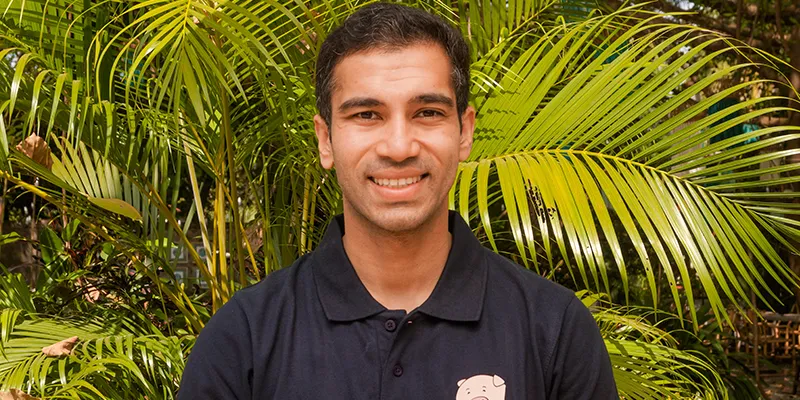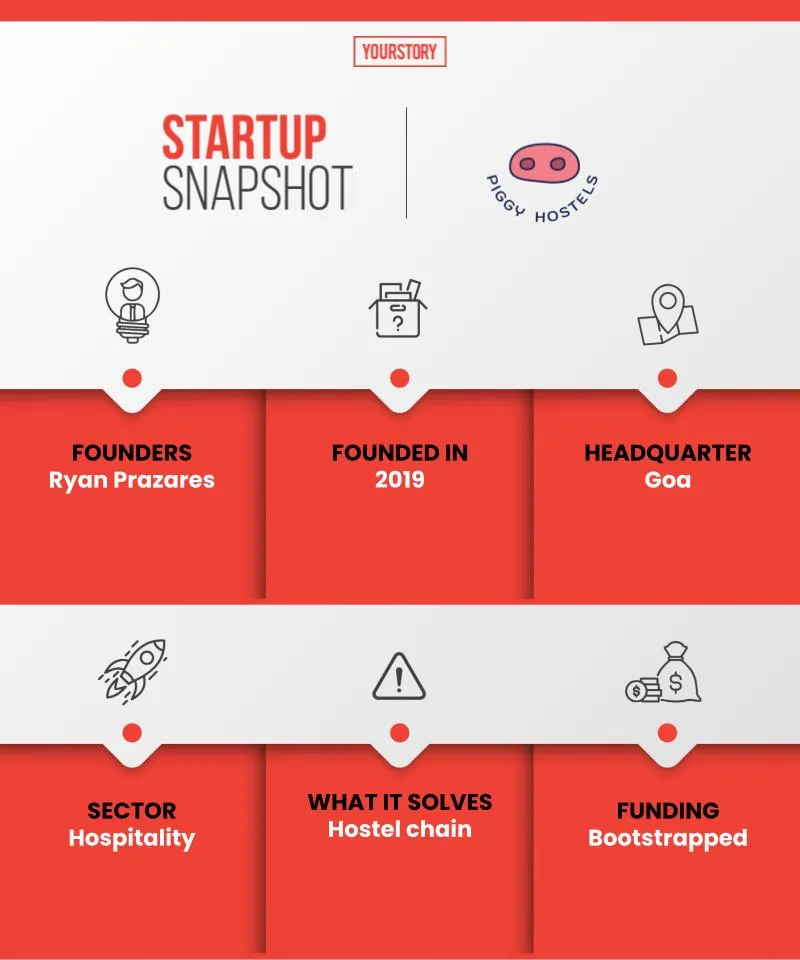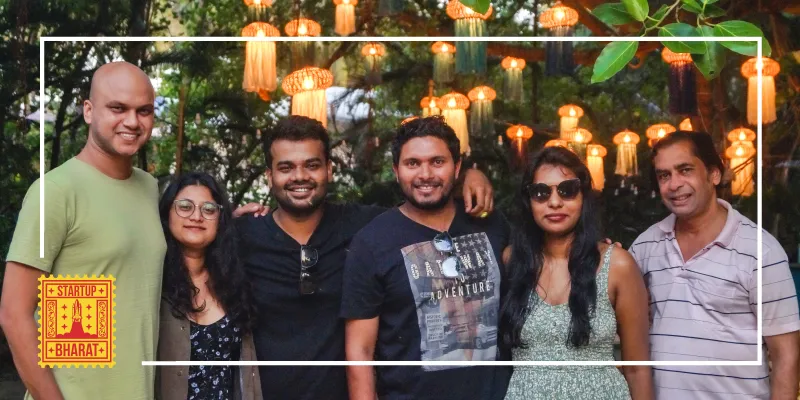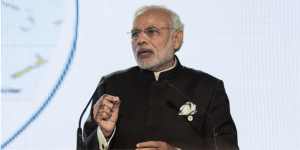While studying at Symbiosis Institute of Management Studies, Pune, Ryan Prazeres had received a scholarship for an exchange semester in 2012 in Lisbon, Portugal.
While in the European country, Ryan took a road trip with his classmates through Spain, where he stayed at a couple of hostels. “After experiencing that culture, I knew I wanted to bring it back home someday,” says Ryan.
For the next few years, Ryan gained experience in the fields of hospitality, finance, and sales. And in May 2019, he started Piggy Hostels in Goa.
Piggy Hostels is a Goa-based backpacker hostel startup that provides clean, affordable, and safe accommodation for travellers, with a focus on guest experience through events and activities.
The startup opened two properties in North Goa — Arambol (October 2019) and Vagator (December 2019). It has a third property in Calangute.

Ryan Prazeres, Founder, Piggy Hostels
Setting up hostels
Post his graduation, Ryan started working as an investment consultant for Imperial Wealth Services, Goa. The job provided him with much-needed networks, which he could leverage to get the right properties for launching the startup.
He explains, “We are trying to solve for an affordable, clean, and safe stay option. We aim to build a community of like-minded people. Being from Goa, we had a fair understanding of the lay of the land and the hotspots that people enjoy frequenting. This helped us narrow down locations, get locals involved in the project, and bring in the typical Goa vibe that people love and come from far to experience. So setting up the properties was relatively easy for us.”
Initially, Ryan oversaw all departments — from HR operations to managing accounts. In fact, he managed operations, reservations, sales, and marketing, while also interacting with guests and getting their feedback.

Image Credit: YS Design
The pandemic disruption
In March 2020, as the business had started picking up, the nationwide lockdown forced the startup to stop taking bookings.
“Things were bad initially. Many tourists stayed back as they had no place to go. We took it upon ourselves to host them with whatever basics we had until they could travel home, which turned out to be three months later,” Ryan shares.
Ryan also launched Piggy Cares — a social awareness creation and fundraising platform for NGOs, assisting them within its capacity. At present, it is providing its hostels as a stay option and other resources as well.
“By May, the damage was already done, especially to tourism. We were hit like all other hotels in the area with zero new bookings for the first few months. What saw us through was our long stay guests, who were primarily foreigners stranded here,” Ryan shares.
Amidst this hullabaloo, Ryan ramped up its marketing efforts and hired more employees to help with the operation. Piggy Hostels’ core team went from one in February to nine in May 2020.
The startup decided to speed things up by scaling, turning its five-year plan into a one-year plan.
Building a tech base
“We plan to open hostels at every location we find feasible and open to tourism even if it means we arrive a bit early before the market,” adds Ryan.
Piggy Hostels uses cloud-based software that is fully integrated across platforms to help manage the hostels from one location. The Goan startup uses an AI-based system to calculate demand in each market and helps the team price and position each property.
“We are developing our own tech, which will enable guests to have a better experience when already at each property. This will inform them of the events and activities, and enrol, and participate in it,” says Ryan.
Piggy Hostels has three leased properties in Goa, one in Kerala, and one franchise at Bundi, Rajasthan, while two signed franchises are due to open by May 2021 in Spiti Valley, Himachal Pradesh.
Its key clients are in the age group of 18-35, young working professionals, digital nomads, and university students. The average bunk price is Rs 500 and the private room is Rs 1,500.
Ryan says the startup is creating an ecosystem that will create value for the franchise holders and will enable them to use tech and get onboard the platform, thus saving on their running costs, and giving them a bigger bottom line.
“We are looking to work with young entrepreneurs and existing independent hostels who want to get nationwide visibility and access to a professional backend set up so their sole focus can be on giving guests a great experience. We assist with creating trip and itineraries, and have a huge volunteering system that benefits them,” says Ryan.

Team Piggy Hostels
Revenue and growth
From October 2019 to March 2020, Piggy Hostels’ total gross revenue was Rs 60 lakh. From October to December 2020, it registered Rs 10 lakh. The bootstrapped startup is expecting to touch Rs 90 lakh this year.
“The tech we are building costs roughly Rs 5 lakh. We plan to develop a much better AI-based ecosystem that will cost up to Rs 1 crore. Once we commence on this, it will take us roughly nine months to finish/implement,” says Ryan.
The hostel segment was hit hard by the pandemic. Startups, including Zostel, OYO Group’s co-working and co-living spaces, GoStops, Bistar, Hosteller, Moustache, and many others, are quite prominent in this space.
According to a TechSci Research report, India’s travel and tourism market stood at $56 billion in 2017. It is projected to grow at a CAGR of over 7.5 percent to reach $86 billion by 2023.
Talking about how things are slowly changing, Ryan says, “The last few months saw a lot of young professionals and couples come to try the ‘workation’ option. With high-speed wi-fi, people could easily log in during the day and work with their teams from various parts of the world, and relax in the evenings by the beach.”
He adds, “Goa has seen a fair amount of traffic with a surge of young backpackers, who were fed up of staying within their own four walls and wanted to explore places such as Goa like a local. We plan to sign 20 hostels by May 2021 and 50 hostels by the end of October 2021.”

![You are currently viewing [Startup Bharat] How a Portugal trip inspired this entrepreneur to start a hostel chain out of Goa](https://blog.digitalsevaa.com/wp-content/uploads/2021/04/SB-1619515869724.png)



![Read more about the article [Funding alert] AdmitKard raises Rs 10Cr from a clutch of edtech startup founders](https://blog.digitalsevaa.com/wp-content/uploads/2021/07/AdmitKardTeamphoto211-1623327238379-300x171.jpg)




